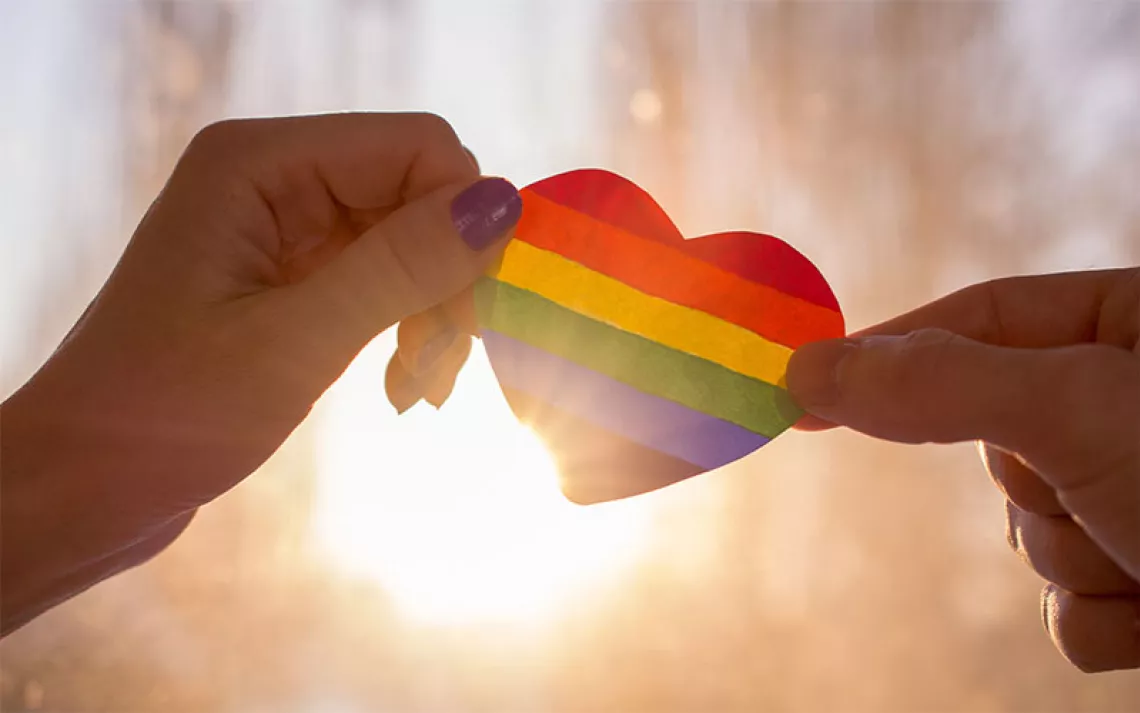REI Rolls Out Tough Sustainability Standards for All Its Brands
The co-op is trying to avoid the “Nascar effect” of too many sustainability labels

Courtesy of REI
Those who love to recreate outdoors make for staunch environmental advocates. Last week, consumer co-op REI announced plans that should make it easier for its adventurer members to find products that support their values. By the fall of 2020, REI will sever its business relationships with any of its 1,000-plus suppliers that don’t meet stringent new requirements in areas including environmental impact, chemical usage, animal welfare, and labor safety and fairness.
The move is among the most comprehensive efforts to advance sustainability in the retail sector. The outdoors-equipment retailer has already supplied to its vendors a 12-page document detailing the new sustainability standards. Some go into effect immediately, while others are more ambitious and aspirational and won’t be mandatory for a couple of years.
The new sustainability standards are almost encyclopedic in their range. By the end of 2020, wool products sold at REI must be sourced from humanely treated sheep. Sunscreens won’t contain coral-reef-bleaching components. The making of down products must never involve the live-plucking or force-feeding of animals. REI will retail only those jackets that haven’t been treated with long-chain fluorocarbons. And REI will expect each brand that it sells to have a manufacturing code of conduct that formally guarantees fair, non-discriminatory labor practices.
“The goal is to establish better ways of doing business and help raise the bar across the entire industry,” says Matt Thurston, REI’s director of sustainability. It’s also to render the consumer shopping experience more straightforward, and streamline the glut of labels that consumers encounter while trying to shop conscientiously. Thurston says REI’s new standards clearly outline preferred third-party certifications and favor some, such as Blue Sign, Fair Trade USA, and Forest Stewardship Council (FSC), over others. “When you end up with so many labels and stickers on all these different brands, we call it the ‘Nascar effect,’” Thurston says. “Everyone’s tracking toward progress, but it can just make things more challenging for the consumer. If consumers learn to look for the best certifications, those labels become that much more powerful.”
 REI is training its employees to be able to plainly explain the sustainability labels to customers, and a new consumer landing page details the ways in which the new supplier standards stand to affect the shopping process. Already, REI customers shopping online can filter their search by sustainability attributes. For example, one can search the REI ecosystem for “women’s down sleeping bags” and then filter results using “responsibly sourced down,” or seek out children’s apparel made from “organically grown cotton,” or men’s outerwear that is “fair trade.”
REI is training its employees to be able to plainly explain the sustainability labels to customers, and a new consumer landing page details the ways in which the new supplier standards stand to affect the shopping process. Already, REI customers shopping online can filter their search by sustainability attributes. For example, one can search the REI ecosystem for “women’s down sleeping bags” and then filter results using “responsibly sourced down,” or seek out children’s apparel made from “organically grown cotton,” or men’s outerwear that is “fair trade.”
REI has spent the better part of the past two years collaborating behind the scenes with more than 60 brand partners, of various sizes and product categories, to co-develop the standards. Thurston says, “We wanted to learn which practices would be most impactful on the ground, the most credible vehicles for advancing them, and figure out what would most effectively drive positive change.”
Theresa Conn, supply chain and sustainability coordinator for New Hampshire’s NEMO Equipment, works for one of the brands that helped REI develop its new rules. “These standards weren’t pulled out of thin air,” she says. “It’s a gathering of best practices from the outdoor industry. It’s a great guiding light, whether you’re a big brand wondering what actions will have the most meaningful immediate impact in your supply chain, or a smaller brand that maybe has lots of energy and excitement but doesn’t know where to start.” According to Conn, the new REI standards have already spurred NEMO to change the chemistry of the DWR (Durable Water Repellent) used in its sleeping bags.
This isn’t just a PR ploy—it turns out there’s more than idealized thinking behind REI’s new standards. “Our findings have confirmed that the products with the most sustainability attributes are the ones that tend to perform best once out in the world,” Thurston says. “They have the best sales, most recommendations, and are purchased by the most loyal REI customers. So we want to give all our partners access to the resources, best practices, and guidance to creating more sustainable products—because it’s more impactful if you can bring others along for the journey.”
REI executives are also well aware that, based on the changes today’s consumers are seeing in the broader socio-political landscape, shoppers are placing ever-greater value on corporate social responsibility. “We’re definitely seeing a swing toward these values, particularly among younger, American customers,” Thurston says, adding that he hopes the co-op’s new standards inspire retailers beyond the outdoor sphere to take a stance in environmental stewardship. “While our approach won’t necessarily be appropriate for every sector, the model is quite universal.”
 The Magazine of The Sierra Club
The Magazine of The Sierra Club



